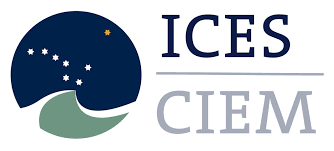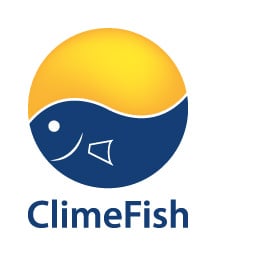ICES

In ClimeFish, ICES contributes to debates and dissemination activities within Europe to ensure science for sustainable use of the sea, especially within the fishery sector.
Article written by Simon Cooper from the ICES Secretariat
History
Since the International Council for the Exploration of the Sea (ICES) was founded in 1902, the organization has collected data on the marine climate and studied the effects of these on the lives and life-histories of marine animals and plants. Knowledge on the interrelationship between climate and marine life and ecosystems has extensively underpinned much of ICES science as well as the advice issued on the use of marine living resources.
ICES and climate change
With the increasing levels of greenhouse gases present in the atmosphere and the associated warming seas and lessening of permanent sea ice at high latitudes, climate and environmental issues have become more solidly embedded into ICES approach over the last few decades, as has the need to model and predict trends.
The concept of ecosystem based management (EBM), first on ICES agenda in 1992, has led to the establishment of expert and science steering groups that seek to understand the responses of ecosystems and their components to climatic changes at various scales. Part of this approach to management is guided by the use of integrated ecosystem assessments (IEAs). These quantitative evaluations synthesize physical, chemical, ecological, and human processes, providing the scientific understanding to deliver advice on societal trade-offs between different policy options. A number of expert groups currently work on IEAs in specific sea regions.
In addition to influencing dynamics of wild fish, sea bird, and marine mammal populations, climate change can also impact on farmed fish and shellfish. Aquaculture is a key pillar for ICES, as laid down in the Strategic Plan 2014-2018, and is an ongoing challenge for ICES and its Member Countries.
Activities and projects
The Strategic Initiative on Climate Change Impacts on Marine Ecosystems (SICCME) between ICES and sister organization the North Pacific Marine Science Organization (PICES) assists in coordinating work on this front, facilitating transboundary collaborative research and data networking.
Engagement with the international marine science community also takes place through conferences and project work, such as the Third International Symposium on the Effects of Climate Change on the World’s Oceans in Brazil in 2015. The ICES Annual Science Conference (ASC) typically features climate-related topics which are discussed by experts from multiple disciplines; at the 2017 ASC, the poleward distributional shifts of fish and plankton and projected climate change impacts on fishery dependent communities will both be explored. Involvement in diverse projects such as the Atlantic Ocean Research Alliance Coordination and Support Action (AORA-CSA), important for ecosystem-based management, and ClimeFish, for sustainability of production, reflect the breadth of involvement on the subject.
ICES is involved in a number of projects, you can read more about these projects at their website.
Important dates for ICES arrangements that ClimeFish will attend will be announced here.

